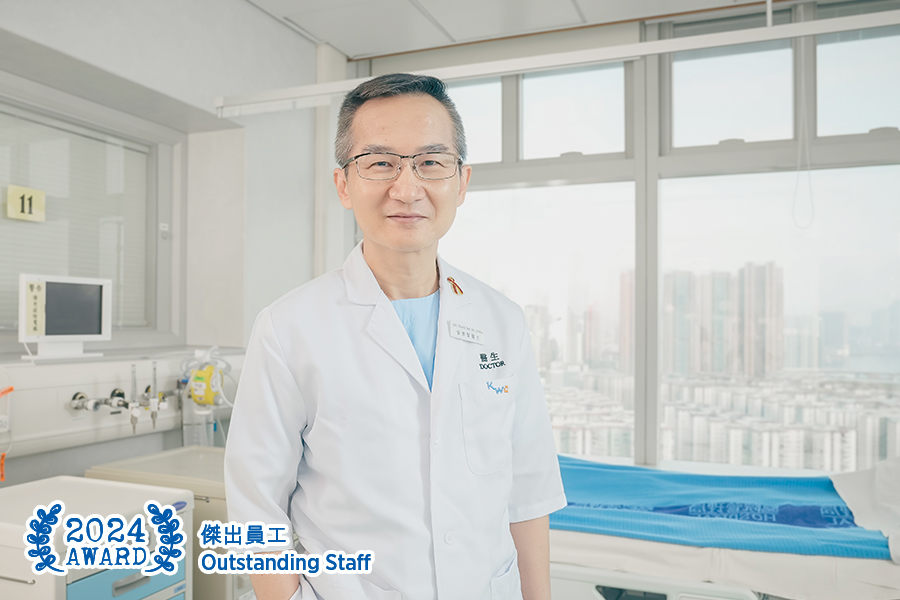Know the patients, understand the illnesses
 Dr Owen Tsang Tak-yin
Dr Owen Tsang Tak-yin
Consultant (Medicine and Geriatrics), Princess Margaret Hospital /
Medical Director, Hospital Authority Infectious Disease Centre
To Dr Owen Tsang Tak-yin, the diagnostic process is just like peeling back the layers of an onion, understanding a patient’s complete medical history and context increases the likelihood of discovering the cause of illness. He explains, “infectious diseases are often intertwined with people’s behaviour and environment. I find immense satisfaction in uncovering the root cause of a disease and providing patients with appropriate treatment.”
Dr Tsang’s fascination with infectious diseases began during his studies in tropical medicine in Australia in 1994, in which he captured mosquitoes for malaria study. “While some individuals may go through life without ever experiencing heart disease, the risk of contracting an infectious disease, such as flu or gastroenteritis is ever-present. It only takes a single mosquito to cause a potentially fatal infection. It drew me towards specialising in this field.”
Over the years, he actively participated in combating the two major outbreaks of infectious diseases in Hong Kong. “SARS was a challenging and transformative period for us. We relied solely on N95 masks for protection. The aftermath led us to develop stringent infection control measures and guidelines.” When the COVID-19 epidemic emerged in 2020, Dr Tsang played a crucial role in participating in the clinical trials of the novel antiviral Remdesivir. “Our accumulated experiences on international research have equipped us to effectively manage future outbreaks.”
In addition to his involvement in infectious disease treatment, Dr Tsang’s responsibilities extend to caring for AIDS patients. He recalls a poignant encounter with a migrant mother in her 40s. She had contracted AIDS from her late husband, who later succumbed to it. Overwhelmed by worry and a sense of helplessness, she expressed deep concern for her young son’s future. Dr Tsang’s team promptly arranged for a clinical psychologist and a medical social worker to provide comprehensive support. Today, she leads a contented life, and her son has started a family of his own. Dr Tsang reflects, “AIDS may not have a cure, but it can be controlled. It is crucial to address patients’ mental well-being and support them in living fulfilling lives.” As Dr Tsang looks ahead to his retirement next year, he emphasises the significance of leveraging big data analysis and artificial intelligence in expedited disease source identification. However, he cautions his colleagues to remain steadfast in their roles as physicians, reminding them that the unique care and personal connection between doctors and patients are irreplaceable.